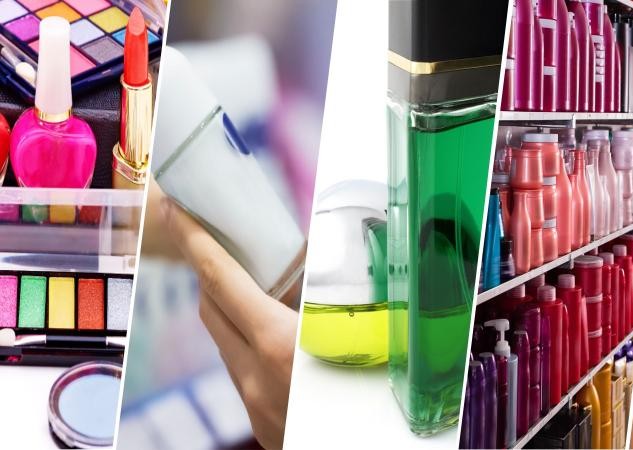FDA LISTING INC: EXPERIENCED ADVISORS FOR FULL-SERVICE FDA REGISTRATION & COMPLIANCE
+1 212 444 8202
Modernization of Cosmetics Regulation Act-MoCRA

FDA Modernization of Cosmetics Regulation Act of 2022 - MoCRA
The Modernization of Cosmetics Regulation Act of 2022 (MoCRA) has finally been signed into law by the U.S. Food and Drug Administration (FDA). This legislation will bring much-needed regulatory oversight to the cosmetic industry, ensuring the safety and well-being of consumers. Companies will now be held accountable for providing the safety and effectiveness of cosmetic products as positive changes toward consumer safety are anticipated.
MoCRA is intended to harmonize the FDA’s regulatory power over cosmetics with other sectors such as drugs, medical devices, and foods. This goal is primarily achieved by mandating cosmetic manufacturers to register their facilities and list their cosmetic products with the FDA, ensuring better monitoring of these facilities and cosmetic products. Furthermore, the FDA intensifies its scrutiny of cosmetic safety through requirements like adverse event reporting, GMP adherence, recordkeeping, and proper cosmetic labeling.
Key Components of MoCRA:
1-Facility Registration & Product Listing:
All domestic and foreign manufacturers and processors are required to register their facilities with the FDA and must renew this registration biennially. Existing cosmetic facilities must comply with this rule by December 29, 2023, and new facilities must do so within 60 days of commencing operations.
A responsible party must list each cosmetic product marketed in the U.S. with the FDA, including the product’s ingredients, manufacturer facility location, and product label, and update this information annually. Cosmetic products introduced to the market after December 29, 2023, must be listed within 120 days of commercial distribution at the latest.
2-Cosmetic Safety Substantiation
Companies and individuals engaged in the production and distribution of cosmetics are responsible for substantiating their products’ safety. Neither the MoCRA nor FDA regulations mandate any specific tests or standards to establish individual products’ safety or their constituent ingredients. According to MoCRA, ‘adequate substantiation’ is tests, studies, analyses, research, or any other evidence deemed acceptable by knowledgeable scientific experts.
A responsible party must establish records demonstrating sufficient safety substantiation for their cosmetic products. Manufacturers can utilize pertinent safety data to validate the safety of their products. Animal testing is not mandatory for the marketing of a cosmetic product.
3-Adverse Events, Recordkeeping and Reporting:
Manufacturers must maintain records of health-related adverse events for 6 years (the number would be only 3 years for small businesses). These records must be available to the FDA and can be requested at any point. A responsible party must report serious adverse events to the FDA within 15 business days following the receipt of the report, along with a copy of the cosmetic retail packaging label. The definition of ‘serious adverse event,’ according to MoCRA, includes events resulting in significant disfigurement or alteration of appearance.
4-GMP & Labeling:
Cosmetic facilities must follow Good Manufacturing Practices- GMPs aligned with national and international standards to ensure cosmetic product safety. The FDA can inspect facilities and access necessary records for GMP compliance. Manufacturers must demonstrate compliance with U.S. safety standards through adequate testing and substantiation, defined as scientific evidence. MoCRA instructs the FDA to release enforceable regulations regarding Good Manufacturing Practices (GMP) for cosmetic manufacturers by December 29, 2025
According to MoCRA, cosmetic product labels must have domestic or electronic contact info where the adverse events can be submitted. Cosmetics must list fragrance allergens to inform consumers. The MoCRA additionally requires a statement for industry professionals to use.
5-MoCRA Exemptions:
Small businesses whose average gross annual U.S. sales for the past three years is below 1,000,000 USD are exempt from some MoCRA requirements such as GMP, facility registration, and product listing (optional registration will still be available for such small businesses). Certain cosmetic products are not eligible for the exemption, such as items that frequently have contact with the eyes or cosmetics for internal use, injectables, and long-lasting cosmetics, and must comply with MoCRA regardless of sales numbers.
6-FDA Enforcement:
MoCRA holds authority above all state and local laws pertaining to cosmetic product safety. The FDA can access and copy certain records if a product poses a health threat and can order a recall if a cosmetic poses health risks and the responsible person refuses a voluntary recall. The FDA also has the authority to suspend a facility’s registration if it determines that a cosmetic product produced or processed by that registered facility and distributed in the United States carries a reasonable risk of causing adverse public health effects. In the event of a facility’s registration suspension, it becomes unlawful to distribute, sell, or otherwise introduce or deliver cosmetic products from that facility into the United States.
In summary, MoCRA brings forth substantial changes to FDA oversight of the cosmetic industry, mandating registration, listing, safety, and reporting requirements while streamlining FDA enforcement power. Cosmetic manufacturers should prepare for compliance by the December 29, 2023 deadline.
_______ Related Services _______




